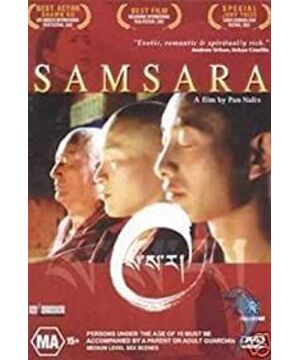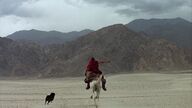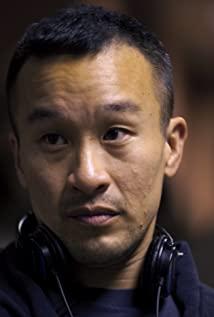Growing up, I had no relatives or friends with religious beliefs, so I searched for the resources of "Heima, Heima" twice and still couldn't understand it. I thought of a former colleague who once explained it to me with all his might. After an afternoon of basic knowledge of Buddhism, I finally understood one point. Buddhism preaches the afterlife. Now that I think about it, it's really a waste of people's efforts. This kind of behavior was laughed at by my friend, Brother Xiaoxiao. A layman said with a smile, "Fudu has a fate, and it seems that I am a person without wisdom." By the way, two movies were recommended to me.
I really want to complain about the translation of the title of the film, but only later did Baidu know that samsara comes from the Tibetan language, also known as reincarnation, which means the circulation of life, including the past of human beings and the eternal life after death, and how human beings can live in the unknown. Harmonious coexistence in China has provided guidance. But this translation has to use the banner of eye-catching erotic edge balls, and waste a good drama in vain.
Although there are many parts that are still ignorant, but probably the plot is clear this time, and it took the director 7 years to make this film, and many of the thoughts about human nature are contained in it.
Maslow, a famous humanistic psychologist, divides human needs into five layers (also said to be six layers), the first layer is physiological needs, the second layer is safety needs, the third layer is emotional needs, the fourth layer is esteem needs, and the fifth layer is esteem needs. Level 1 self-actualization needs (level 6 self-transcendence needs, combined with level 5 in most theories). The needs of each level are generated after the needs of the next level are satisfied. The religious and sexual needs mentioned in the film are actually the embodiment of the third-level emotional needs. I have never quite understood why many religions oppose sex and religion? What does preaching abstinence mean? Hope someone can enlighten me.
Many scenes in the film feel very philosophical, especially when the monk Dashi decided to find his wife to join the WTO, he passed a river and bathed in it, but the black dog that had been following him left him after he bathed. Abandoned him because of his religion? And when Dashi decided to go back to the temple and bathe in the same river, does it also mean that just like our life cycle, we come from where we go and go back and forth? Life is endless, everyone is a grain of sand and dust, but in the end, dust returns to dust, and the body is just a skin that holds the soul, but some people take this skin too seriously and forget that it is the most important thing What is inside is his own soul, and under the colorful skin is a pale and shriveled soul. Beautiful appearances are common in the world, but there are not many interesting souls. It's been too long, do you still remember the reason for departure? It is often said that speed is the most important thing, and it is best to walk the fastest in the crowd. And people who walk in this world are just passing by in a hurry and get on the one-way train of life. Why not let yourself enjoy the beautiful scenery outside the window and listen to your heart? Is life just coming from where you go and going where you come? Why bother with your own heart?
View more about Samsara reviews










